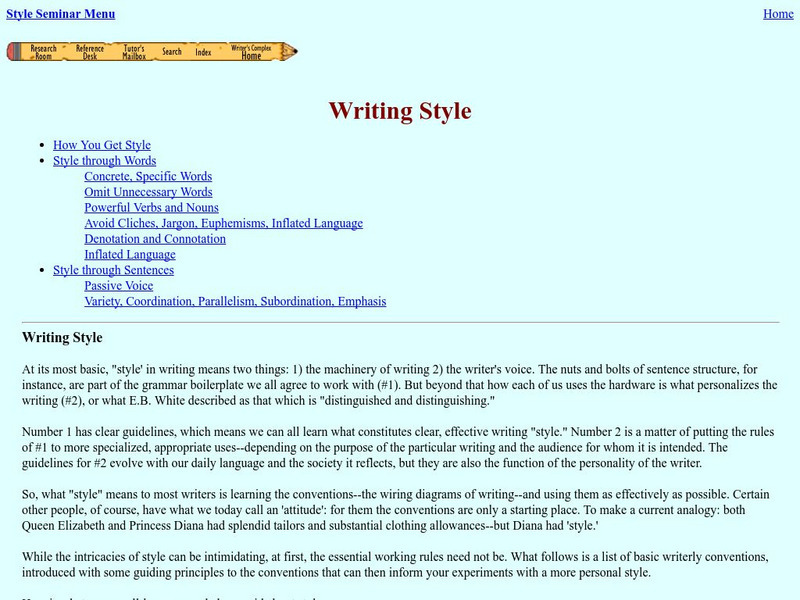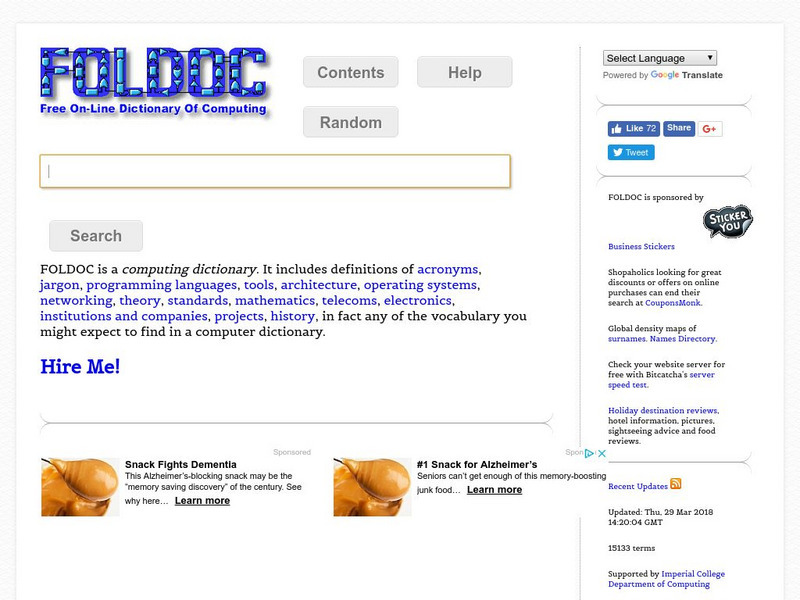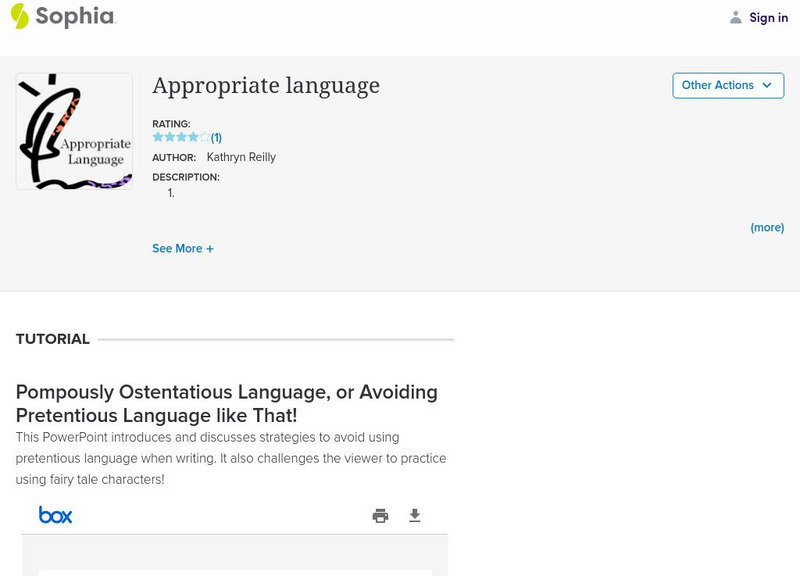Hi, what do you want to do?
Southern Nevada Regional Professional Development Program
“Double Double Speak Speak”
Bilateral suborbital hematoma? Call an audible? 404? Have fun with “the twittering or warbling of birds,” or as 14th century French speakers would say, have fun with “jargon.” Groups match specialized jargon with plain speech, decode...
Newspaper in Education
Lesson 10: Studying Content-Specific Language
Stanchion, spar, spinnaker. Right wing, sweeper, hip check. Every subject has specialized vocabulary. Here’s a fun way to introduce your learners to this jargon. Provide class groups with newspapers and have them search pre-selected...
Curated OER
Using Words: Verbal Communication
Written and verbal communication is the topic for today. The class goes over various facets of verbal communication, such as plain English, active voice, passive voice, cliché, and jargon. They then use those devices as they discuss...
Curated OER
Jargon and Development Speak
Jargon is usually composed of long, area-specific vocabulary that is not necessarily easy to understand. A category known as "DevelopmentSpeak" is used in development organizations and is often quite verbose. Help your learners avoid...
Curated OER
Epic Poetry: Literary Terms for Story Analysis
What do Star Wars, Indiana Jones, and The Odyssey have in common? Why, they are all epics, of course, and are presented here as examples of the literary term. If you are beginning a study of epics, consider previewing the terms included...
Curated OER
Language and Social Culture
"Language and culture are so related that you cannot understand one without a knowledge of the other." The 37 slides in this presentation are meant to reinforce the points made in a lecture about language, language vareities, language...
Curated OER
Pragmatics
Discover the differences in dialect when teaching linguistics. Many examples from Creole, Pidgin, slang, and the UK are used. The slides are black and white and mostly consist of various examples.
Curated OER
What's the Scoop on Slang?
Students examine examples of sports jargon by reading sports articles from a newspaper. They write a news article about a fictional sports event using examples of sports jargon.
Curated OER
Rollin’ on the River: Identifying Jargon
Students identify jargon in poetry, prose and fiction. In this literature lesson plan, students will read selections from Mark Twain and identify figurative langauge, focusing on jargon.
Curated OER
Old English: Pirate Slang
Students review a list of slang used by pirates and then compile a list of slang that they use in their everyday language. They discuss which examples of slang should be included in the dictionary and in which contexts slang is appropriate.
Curated OER
Juggling the Jargon (An Idiomatic Lesson)
Fourth graders examine a list of idioms and pick one to focus on for this lesson. They use an illustration program to illustrate their idiom. They guess what other students idioms were based on their drawings.
SUNY Empire State College
Empire State College: Writing Style Seminar
This detailed resource provides a good tutorial on writing style, whether informal or formal. It explains how to get style through word and sentence choice and includes lots of examples. W.9-10.1d & W.9-10.2e Style/tone/conv,...
Other
Foldoc Computing Dictionary
This resource presents a searchable dictionary of computer terminology that includes pronunciations. Links within the definitions allow you to gain a thorough understanding of the term.
Other
A Beginner's Guide to Effective Email: Acronyms & Jargon
An interesting and fairly detailed list of many of the acronyms that are used in email. Also discusses some unique internet/email "jargon," such as "spam."
Grammarly
Grammarly Handbook: Text Level Measurements of Adequate Writing
This Grammarly Handbook resource provides information about how to check for text-level measurements of adequate writing grammar rules in an essay. This resource will explain the importance of the following: readability, lexical density,...
Sophia Learning
Sophia: Appropriate Language
This lesson focuses on using appropriate language in formal writing; it discusses pretentious language, jargon, and cliches. It defines each, provides examples, and explains why and how to avoid each. SL.9-10.6 Adapt to task/formal
Sophia Learning
Sophia: Appropriate Language
Students can learn how to use language appropriately through these notes on pretentious language, nine presentation slides on using jargon, eleven presentation slides on cliches in writing, and a video also about cliches. [2:00]
Sophia Learning
Sophia: Appropriate Language
A series of three PowerPoints and two videos defining pretentious language, jargon, and cliche and explaining how writers can avoid using them. W.11-12.2d Lang/Fig/Voc
Online Writing Lab at Purdue University
Purdue University Owl: Using Appropriate Language
Knowing the right language for your particular audience is a necessary skill for all writers. No one wants to offend their audience or appear as though they don't know their content. Learn these rules of thumb to become more familiar...
Sophia Learning
Sophia: Clarity: Avoiding Assumptions
This lesson discusses avoiding assumptions about the reader. CCSS.ELA-Literacy.WHST.6-8.4

























